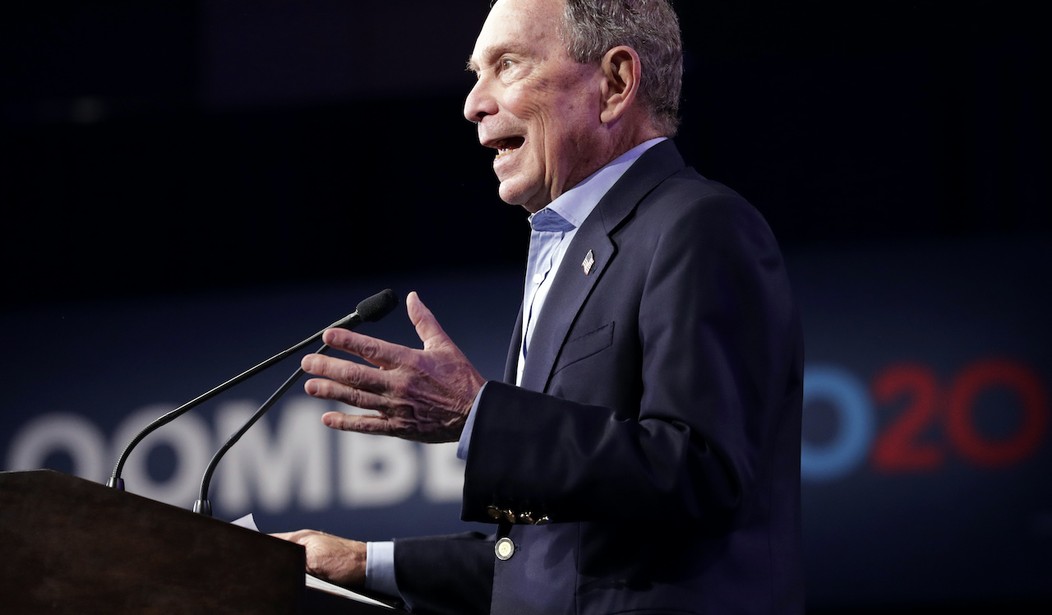Two and a half weeks after Bernie Sanders slammed Michael Bloomberg for trying to "buy this election," the former New York City mayor dropped out of the race for the Democratic presidential nomination, having spent $570 million of his own money to win 61 delegates. Tom Steyer, the other billionaire in the race, did even worse, abandoning his campaign after spending more than $250 million and earning zero delegates.
Those spectacular failures should give pause to the politicians and activists who argue that money poses a grave threat to democracy -- so grave that the Constitution must be amended to authorize limits on campaign spending. The Bloomberg and Steyer fiascoes show that no amount of money can buy victory for candidates who fail to persuade voters.
Bloomberg's unprecedented ad blitz seemed to be effective at first, boosting his standing in national polls from around 3% in November to as high as 19% by early March. But when push came to shove on Super Tuesday last week, Democrats keen to replace President Donald Trump did not buy Bloomberg's argument that he was the man to do it.
The arrogance embodied in Bloomberg's strategy of skipping the early contests and debates, flooding the airwaves and internet with ads, and swooping in to rescue a party he joined less than two years ago goes a long way toward explaining why primary voters found him so unappealing. His disastrous performance during the first debate in which he participated surely didn't help, and neither did his wooden demeanor or the generally uninspiring vibe of his TV spots, which one Democratic strategist described as "mediocre messaging at massive scale."
Steyer, a hedge fund manager who had previously spent many millions of his personal fortune to support mostly losing Democratic candidates, saw almost no visible return on his investment in his own campaign. He was polling at 0% last July and by the time he dropped out in February had climbed all the way to 1%.
These meager to modest results are consistent with research on the role of money in congressional races. Although the candidate who spends the most generally wins, that pattern can be explained almost entirely by donors' eagerness to back strong contenders.
For incumbents, who were reelected 91% of the time in the House and 84% of the time in the Senate last time around, it has proven remarkably difficult to show that spending more attracts more votes. Money matters most for challengers, which means that caps on spending are apt to help maintain the status quo rather than shake things up.
While "money isn't speech," as advocates of restrictions keep reminding us, money is necessary for speech to reach a wide audience, which is especially important for candidates who do not enjoy the manifold advantages of incumbency, including name recognition, constant visibility, good will earned through constituent service and voters' tendency to stick with the guy they know unless there is a compelling reason to take a chance on someone else. Restrictions on spending impair a candidate's ability to get his message across, just as direct restrictions on the use of telephones, video equipment, computers, or the internet would, even though those technologies are not speech either.
Limiting access to the means of mass communication obviously would violate the First Amendment, and so does limiting their use by telling candidates how much money they can spend, as the Supreme Court has repeatedly held. Yet Democrats are so obsessed with the supposedly corrupting impact of money in politics that they are ready to authorize such restrictions by fundamentally rewriting the law of free speech, as a constitutional amendment backed by every Democrat in the Senate and more than 9 out of 10 Democrats in the House would do.
Recommended
Contrary to the fears underlying that illiberal initiative, voters are perfectly capable of rejecting even the most powerfully amplified messages. Just ask Bloomberg and Steyer.
Jacob Sullum is a senior editor at Reason magazine. Follow him on Twitter: @JacobSullum. To find out more about Jacob Sullum and read features by other Creators Syndicate writers and cartoonists, visit the Creators Syndicate webpage at www.creators.com.

























Join the conversation as a VIP Member